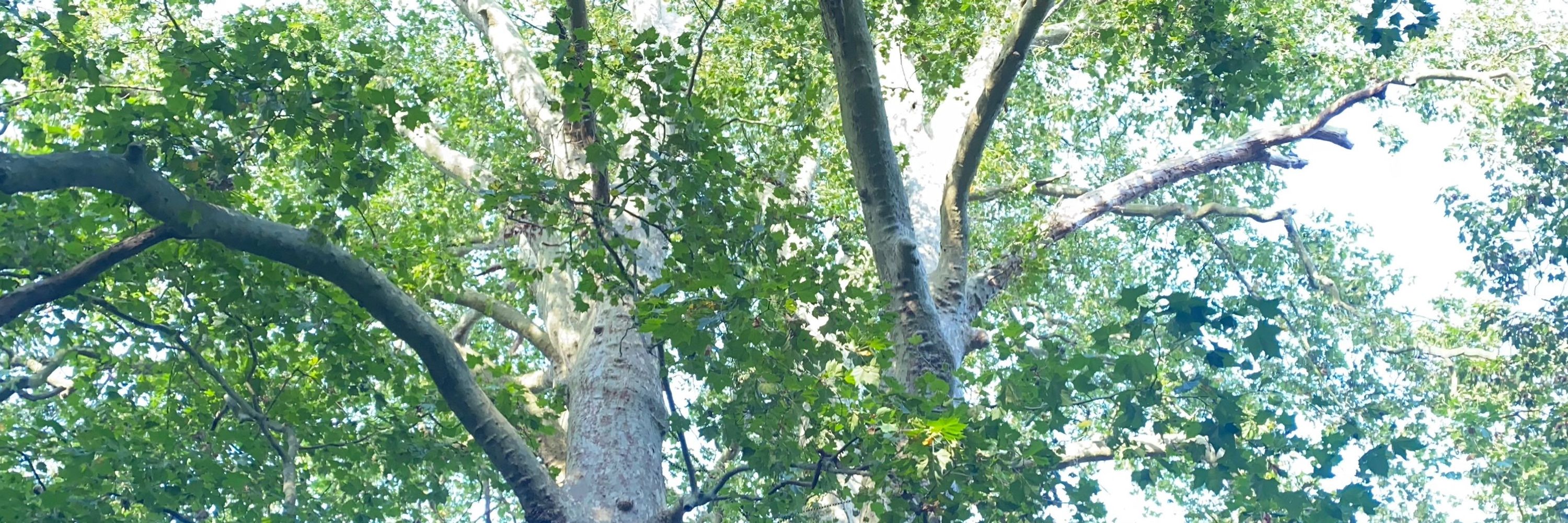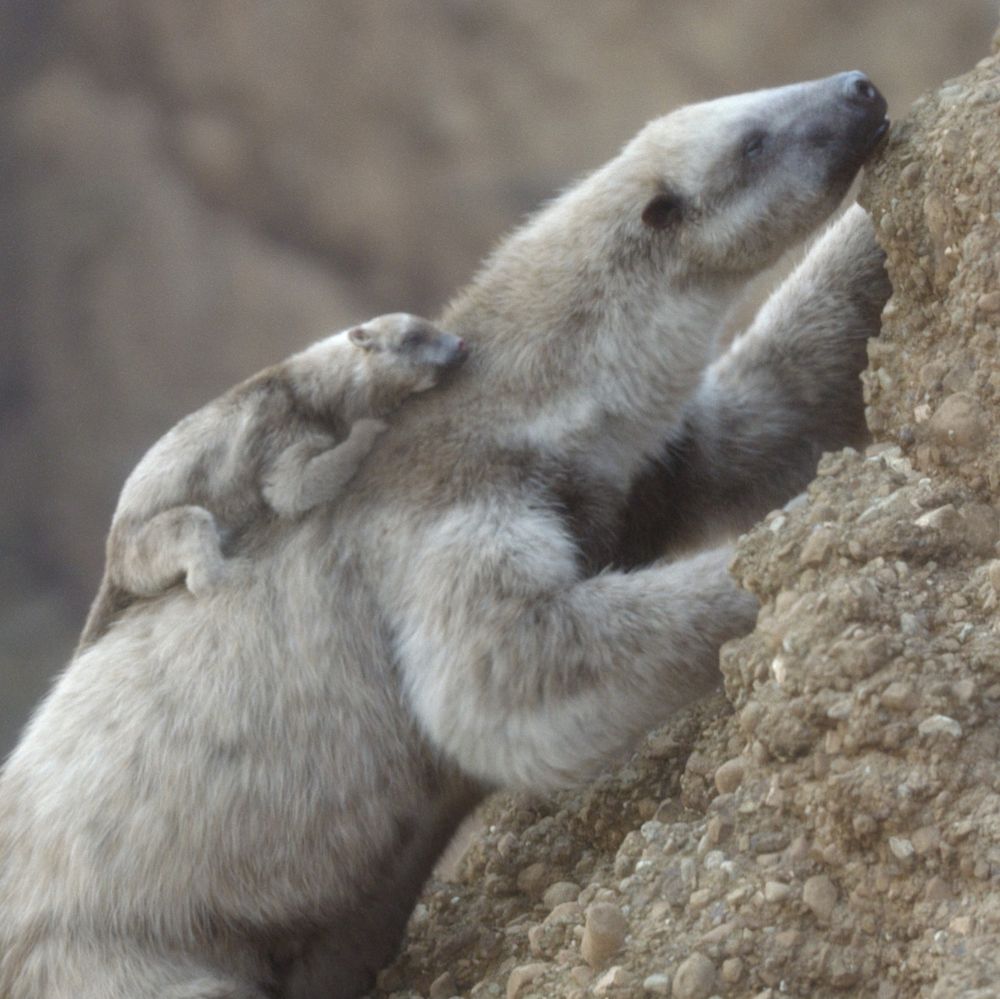
Tori Herridge
@toriherridge.bsky.social
🏛Senior Lecturer, University of Sheffield 🎓PhD Evolutionary Biology🏝Islands 🐘Elephants🦣Mammoths🦷Teeth ⚒️1/4 of TrowelBlazers 📰EiC Open Quaternary 🎥🎙Presenter. Expcet typos.
Pinned
Once upon a time, in the late 1800s, people in Japan got really into breeding mice.
Coloured mice. Patterned mice. Even mice that danced.
They became known as Japanese Fancy Mice, and that caught the attention of researchers in Europe and America, who imported them for study.
2/n
Coloured mice. Patterned mice. Even mice that danced.
They became known as Japanese Fancy Mice, and that caught the attention of researchers in Europe and America, who imported them for study.
2/n
Would you like to hear a story about a woolly mouse…?
🐭🦣🧪
🐭🦣🧪
Reposted by Tori Herridge
I think that this @natgeosci.nature.com paper—now published in the November issue of this journal—is worth checking out:
doi.org/10.1038/s415...
🧪 ⚒️ 🦣 🌊
#PaleoSky
doi.org/10.1038/s415...
🧪 ⚒️ 🦣 🌊
#PaleoSky

Earth system response to Heinrich events explained by a bipolar convection seesaw - Nature Geoscience
The onset of Southern Ocean convection following a slowing of the Atlantic Meridional Overturning Circulation during Heinrich events can help explain rapid CO2 increases and Antarctic warming during t...
doi.org
November 10, 2025 at 10:36 AM
I think that this @natgeosci.nature.com paper—now published in the November issue of this journal—is worth checking out:
doi.org/10.1038/s415...
🧪 ⚒️ 🦣 🌊
#PaleoSky
doi.org/10.1038/s415...
🧪 ⚒️ 🦣 🌊
#PaleoSky
Reposted by Tori Herridge
Unwittingly proving Gibson's 1st Law of BBC Bias: You only think it's biased against the thing that you believe, otherwise you only hear facts
November 9, 2025 at 9:04 AM
Unwittingly proving Gibson's 1st Law of BBC Bias: You only think it's biased against the thing that you believe, otherwise you only hear facts
Reposted by Tori Herridge
Avoid jumping to conclusions about mechanisms behind large-scale genetic shifts in the past! This paper doesn’t prove that small scale migrations of Homo sapiens led to the gradual replacement of Neanderthal DNA but suggests this explanation is as good as any other.
www.nature.com/articles/s41...
www.nature.com/articles/s41...

A simple analytical model for Neanderthal disappearance due to genetic dilution by recurrent small-scale immigrations of modern humans - Scientific Reports
Scientific Reports - A simple analytical model for Neanderthal disappearance due to genetic dilution by recurrent small-scale immigrations of modern humans
www.nature.com
November 8, 2025 at 9:53 PM
Avoid jumping to conclusions about mechanisms behind large-scale genetic shifts in the past! This paper doesn’t prove that small scale migrations of Homo sapiens led to the gradual replacement of Neanderthal DNA but suggests this explanation is as good as any other.
www.nature.com/articles/s41...
www.nature.com/articles/s41...
Reposted by Tori Herridge
oh yeah ok this is super cool
not only did they find a gynandromorph spider, it also turned out to be a new species! 🤯🧪🕷️
not only did they find a gynandromorph spider, it also turned out to be a new species! 🤯🧪🕷️
#Science #Entomology #Arachnids #Spiders
Scientists Found a Half-Male, Half-Female Spider in Thailand and It’s Fascinating www.zmescience.com/science/news...
Scientists Found a Half-Male, Half-Female Spider in Thailand and It’s Fascinating www.zmescience.com/science/news...

Scientists Found a Half-Male, Half-Female Spider in Thailand and It’s Fascinating
Scientists named the half-male, half-female spider after an One Piece anime character who can change sex at will.
www.zmescience.com
November 8, 2025 at 2:42 PM
oh yeah ok this is super cool
not only did they find a gynandromorph spider, it also turned out to be a new species! 🤯🧪🕷️
not only did they find a gynandromorph spider, it also turned out to be a new species! 🤯🧪🕷️
Reposted by Tori Herridge
🌿🍄🟫🌱🍄We’re recruiting!!🌿🍄🟫🌱🍄
I’m looking for two postdocs and a technician to join my group @sheffielduni.bsky.social @sheffieldpps.bsky.social to work with me on my exciting @royalsociety.org Faraday Discovery Fellowship project, details for each post as follows:
I’m looking for two postdocs and a technician to join my group @sheffielduni.bsky.social @sheffieldpps.bsky.social to work with me on my exciting @royalsociety.org Faraday Discovery Fellowship project, details for each post as follows:
November 8, 2025 at 1:00 PM
🌿🍄🟫🌱🍄We’re recruiting!!🌿🍄🟫🌱🍄
I’m looking for two postdocs and a technician to join my group @sheffielduni.bsky.social @sheffieldpps.bsky.social to work with me on my exciting @royalsociety.org Faraday Discovery Fellowship project, details for each post as follows:
I’m looking for two postdocs and a technician to join my group @sheffielduni.bsky.social @sheffieldpps.bsky.social to work with me on my exciting @royalsociety.org Faraday Discovery Fellowship project, details for each post as follows:
Reposted by Tori Herridge
I hosted a great discussion of it all here too:
November 8, 2025 at 11:03 AM
I hosted a great discussion of it all here too:
Reposted by Tori Herridge
If I see one more stupid Rosalind Franklin take I'm going to lose my mind. Thank god for @matthewcobb.bsky.social and @nccomfort.bsky.social. www.nature.com/articles/d41...

What Rosalind Franklin truly contributed to the discovery of DNA’s structure
Franklin was no victim in how the DNA double helix was solved. An overlooked letter and an unpublished news article, both written in 1953, reveal that she was an equal player.
www.nature.com
November 8, 2025 at 7:21 AM
If I see one more stupid Rosalind Franklin take I'm going to lose my mind. Thank god for @matthewcobb.bsky.social and @nccomfort.bsky.social. www.nature.com/articles/d41...
Reposted by Tori Herridge
New at Tetrapod Zoology, a brief look at what's surely the world's best known extinct proboscidean: that Ice Age superstar the Woolly mammoth .... tetzoo.com/blog/2025/11... #mammoths #IceAge #Pleistocene #fossilmammals #elephants

A Woolly Mammoth Primer — Tetrapod Zoology
I’ve said before that proboscideans – the familiar group of placental mammals that includes living elephants and their many fossil relatives – have never been well served here at Tet Zoo…
tetzoo.com
November 5, 2025 at 9:08 PM
New at Tetrapod Zoology, a brief look at what's surely the world's best known extinct proboscidean: that Ice Age superstar the Woolly mammoth .... tetzoo.com/blog/2025/11... #mammoths #IceAge #Pleistocene #fossilmammals #elephants
Reposted by Tori Herridge
📍 Project based in Liverpool in @livevobiomech.bsky.social
🥼 The team includes @tguillerme.bsky.social @toriherridge.bsky.social @nottswildlife.bsky.social and me!
🔗 Project description: www.findaphd.com/phds/project...
🥼 The team includes @tguillerme.bsky.social @toriherridge.bsky.social @nottswildlife.bsky.social and me!
🔗 Project description: www.findaphd.com/phds/project...

ACCE+ DLA Programme: Morphological Trait Evolution in Isolated Populations of Large Mammals and its Implications for Rewilding in the UK at University of Liverpool on FindAPhD.com
PhD Project - ACCE+ DLA Programme: Morphological Trait Evolution in Isolated Populations of Large Mammals and its Implications for Rewilding in the UK at University of Liverpool, listed on FindAPhD.co...
www.findaphd.com
November 3, 2025 at 12:08 PM
📍 Project based in Liverpool in @livevobiomech.bsky.social
🥼 The team includes @tguillerme.bsky.social @toriherridge.bsky.social @nottswildlife.bsky.social and me!
🔗 Project description: www.findaphd.com/phds/project...
🥼 The team includes @tguillerme.bsky.social @toriherridge.bsky.social @nottswildlife.bsky.social and me!
🔗 Project description: www.findaphd.com/phds/project...
Reposted by Tori Herridge
📣Another exciting PhD available!
Partnered with @nottswildlife.bsky.social and fully funded by the ACCE+ NERC Doctoral Landscape Award.
We will look at morphological trait evolution, isolation and environment change, and rewilding of large herbivores.
#evolution #WilderFuture #rewilding #PhD
Partnered with @nottswildlife.bsky.social and fully funded by the ACCE+ NERC Doctoral Landscape Award.
We will look at morphological trait evolution, isolation and environment change, and rewilding of large herbivores.
#evolution #WilderFuture #rewilding #PhD

November 3, 2025 at 12:08 PM
📣Another exciting PhD available!
Partnered with @nottswildlife.bsky.social and fully funded by the ACCE+ NERC Doctoral Landscape Award.
We will look at morphological trait evolution, isolation and environment change, and rewilding of large herbivores.
#evolution #WilderFuture #rewilding #PhD
Partnered with @nottswildlife.bsky.social and fully funded by the ACCE+ NERC Doctoral Landscape Award.
We will look at morphological trait evolution, isolation and environment change, and rewilding of large herbivores.
#evolution #WilderFuture #rewilding #PhD
Reposted by Tori Herridge
Reposted by Tori Herridge
Phd project on Climate Change Impacts on Sexually Selected Traits, lead by Alison Wright at Sheffield Uni, with supervisor team including @andrewpom.bsky.social and me. Application deadline 7th Jan

ACCE+ DLA Programme: The impact of climate change on sexually selected traits and its consequences for evolutionary fitness at University of Sheffield on FindAPhD.com
PhD Project - ACCE+ DLA Programme: The impact of climate change on sexually selected traits and its consequences for evolutionary fitness at University of Sheffield, listed on FindAPhD.com
www.findaphd.com
November 3, 2025 at 5:35 PM
Phd project on Climate Change Impacts on Sexually Selected Traits, lead by Alison Wright at Sheffield Uni, with supervisor team including @andrewpom.bsky.social and me. Application deadline 7th Jan
Reposted by Tori Herridge
New study in Nature by Lin et al shows how the sea-level rise from the melting Ice Age ice (a total of 120 meters rise) ended thousands of years ago.
Until our fossil fuel use started a new phase of rising seas.
Graph shows the global mean rate of sea level rise.
🌊
www.nature.com/articles/s41...
Until our fossil fuel use started a new phase of rising seas.
Graph shows the global mean rate of sea level rise.
🌊
www.nature.com/articles/s41...

November 3, 2025 at 12:09 PM
New study in Nature by Lin et al shows how the sea-level rise from the melting Ice Age ice (a total of 120 meters rise) ended thousands of years ago.
Until our fossil fuel use started a new phase of rising seas.
Graph shows the global mean rate of sea level rise.
🌊
www.nature.com/articles/s41...
Until our fossil fuel use started a new phase of rising seas.
Graph shows the global mean rate of sea level rise.
🌊
www.nature.com/articles/s41...
Reposted by Tori Herridge
🧪 Here's the radio encounter between Ben & @toriherridge.bsky.social a year ago (7:40➡️) which covered many mammoth de-extinction issues, but didn't get into the major one for me which is how sustainable is it to create arctic-adapted elephants for a vanishing ecosystem?
www.bbc.co.uk/sounds/play/...
www.bbc.co.uk/sounds/play/...

BBC Inside Science - Should we bring back extinct animals? - BBC Sounds
A US company claims it will bring back a woolly mammoth by 2028 – how and why?
www.bbc.co.uk
October 30, 2025 at 12:19 PM
🧪 Here's the radio encounter between Ben & @toriherridge.bsky.social a year ago (7:40➡️) which covered many mammoth de-extinction issues, but didn't get into the major one for me which is how sustainable is it to create arctic-adapted elephants for a vanishing ecosystem?
www.bbc.co.uk/sounds/play/...
www.bbc.co.uk/sounds/play/...
Reposted by Tori Herridge
Image of the Sun.
Taken at night.
Not looking up at sky but down through 8000 miles of rock to the other side of the Earth.
Not with light but neutrinos.
Taken at night.
Not looking up at sky but down through 8000 miles of rock to the other side of the Earth.
Not with light but neutrinos.

November 1, 2025 at 7:50 AM
Image of the Sun.
Taken at night.
Not looking up at sky but down through 8000 miles of rock to the other side of the Earth.
Not with light but neutrinos.
Taken at night.
Not looking up at sky but down through 8000 miles of rock to the other side of the Earth.
Not with light but neutrinos.
Reposted by Tori Herridge
I talked to Nature Methods about fieldwork and @trowelblazers.bsky.social www.nature.com/articles/s41... -- never say no to two many chandeliers, hey
When fieldwork calls your name - Nature Methods
These scientists prefer digging in the hot sun or hauling in ocean data in the sub-zero cold.
www.nature.com
October 31, 2025 at 10:07 AM
I talked to Nature Methods about fieldwork and @trowelblazers.bsky.social www.nature.com/articles/s41... -- never say no to two many chandeliers, hey
Reposted by Tori Herridge
It's the end of the road for BBC Science in Action. But science itself is facing growing roadblocks. For this terminal edition of SinA I'm joined by @naomioreskes.bsky.social @drdebhoury.bsky.social @michaelemann.bsky.social & @angierasmussen.bsky.social for where now?
www.bbc.co.uk/programmes/w...
www.bbc.co.uk/programmes/w...

BBC World Service - Science In Action, How science got here, and where next
As anti-science leaves research reeling, does evidence-based policy have a future?
www.bbc.co.uk
October 30, 2025 at 7:23 PM
It's the end of the road for BBC Science in Action. But science itself is facing growing roadblocks. For this terminal edition of SinA I'm joined by @naomioreskes.bsky.social @drdebhoury.bsky.social @michaelemann.bsky.social & @angierasmussen.bsky.social for where now?
www.bbc.co.uk/programmes/w...
www.bbc.co.uk/programmes/w...
Reposted by Tori Herridge
Reposted by Tori Herridge
Short piece in @consletters.bsky.social exploring social, cultural, political and ecological apsects of illicit and unregulated species translocations - what others (not me, due to homophone errors) might call guerilla rewilding. conbio.onlinelibrary.wiley.com/doi/10.1111/...

Who Let the Frogs out? Illicit and Unregulated Species Translocations
Click on the article title to read more.
conbio.onlinelibrary.wiley.com
October 30, 2025 at 8:40 AM
Short piece in @consletters.bsky.social exploring social, cultural, political and ecological apsects of illicit and unregulated species translocations - what others (not me, due to homophone errors) might call guerilla rewilding. conbio.onlinelibrary.wiley.com/doi/10.1111/...
Reposted by Tori Herridge
🌎🌐🫎🌵Extinctions:
⬆️ last 500 years! 👎
...but...
⬇️ last 100 years! 👍 (in general)
Unpacking the extinction crisis: rates, patterns and causes of recent extinctions in plants and animals @royalsociety royalsocietypublishing.org/doi/10.1098/...
⬆️ last 500 years! 👎
...but...
⬇️ last 100 years! 👍 (in general)
Unpacking the extinction crisis: rates, patterns and causes of recent extinctions in plants and animals @royalsociety royalsocietypublishing.org/doi/10.1098/...

Unpacking the extinction crisis: rates, patterns and causes of recent extinctions in plants and animals | Proceedings of the Royal Society B: Biological Sciences
Biodiversity loss is one of the greatest challenges facing Earth today. The most direct
information on species losses comes from recent extinctions. However, our understanding
of these recent, human-r...
royalsocietypublishing.org
October 27, 2025 at 5:18 PM
🌎🌐🫎🌵Extinctions:
⬆️ last 500 years! 👎
...but...
⬇️ last 100 years! 👍 (in general)
Unpacking the extinction crisis: rates, patterns and causes of recent extinctions in plants and animals @royalsociety royalsocietypublishing.org/doi/10.1098/...
⬆️ last 500 years! 👎
...but...
⬇️ last 100 years! 👍 (in general)
Unpacking the extinction crisis: rates, patterns and causes of recent extinctions in plants and animals @royalsociety royalsocietypublishing.org/doi/10.1098/...
Reposted by Tori Herridge
Anyone interested in learning about why journals make a proactive effort to increase women's participation in the peer review process should take the time look at some actual evidence about why this is needed. Ditto journalists covering such a story. Do some reporting! www.nature.com/articles/s41...

Women are credited less in science than men - Nature
The difference between the number of men and women listed as authors on scientific papers and inventors on patents is at least partly attributable to unacknowledged contributions by women scientists.
www.nature.com
October 28, 2025 at 11:22 AM
Anyone interested in learning about why journals make a proactive effort to increase women's participation in the peer review process should take the time look at some actual evidence about why this is needed. Ditto journalists covering such a story. Do some reporting! www.nature.com/articles/s41...
Reposted by Tori Herridge
Gulliver's Travels is 300 this year. Have there been any celebrations, events, articles or podcasts to mark its tercentenary?

October 27, 2025 at 8:38 PM
Gulliver's Travels is 300 this year. Have there been any celebrations, events, articles or podcasts to mark its tercentenary?
Reposted by Tori Herridge
🏺🧪🦣 Was more than happy to speak to @killgrove.bsky.social for this: even if you ignored the horrendous, insurmountable ethical issues, what we'd learn would do almost nothing to advance our understanding of prehistoric #Neanderthal lives, nor our encounters with them.
There's zero justification.
There's zero justification.
Given all the hype about “de-extincting” animals, could Neanderthals be next? The technology doesn’t currently exist, researchers told me, but could one day. However, it would be an ethical minefield. 🏺🧪

Neanderthals could be brought back within 20 years — but is it a good idea?
With today's technology, we cannot bring back Neanderthals. But even if future advances allow it, should we?
www.livescience.com
October 26, 2025 at 9:06 PM
🏺🧪🦣 Was more than happy to speak to @killgrove.bsky.social for this: even if you ignored the horrendous, insurmountable ethical issues, what we'd learn would do almost nothing to advance our understanding of prehistoric #Neanderthal lives, nor our encounters with them.
There's zero justification.
There's zero justification.
Out of Asia…
Central Asia as the centre of origin of northern hemisphere faunas
🧪
www.science.org/doi/10.1126/...
Central Asia as the centre of origin of northern hemisphere faunas
🧪
www.science.org/doi/10.1126/...

Central Asian radiation of modern large-mammal faunas in Miocene
Faunal phylogenetic contribution analysis of a mammal supertree shows Central Asia was the Neogene hub for modern megafauna.
www.science.org
October 27, 2025 at 8:21 AM
Out of Asia…
Central Asia as the centre of origin of northern hemisphere faunas
🧪
www.science.org/doi/10.1126/...
Central Asia as the centre of origin of northern hemisphere faunas
🧪
www.science.org/doi/10.1126/...
Reposted by Tori Herridge
SOON....
Behind-the-scenes events happening all the time
Behind-the-scenes events happening all the time



October 26, 2025 at 9:06 AM
SOON....
Behind-the-scenes events happening all the time
Behind-the-scenes events happening all the time


